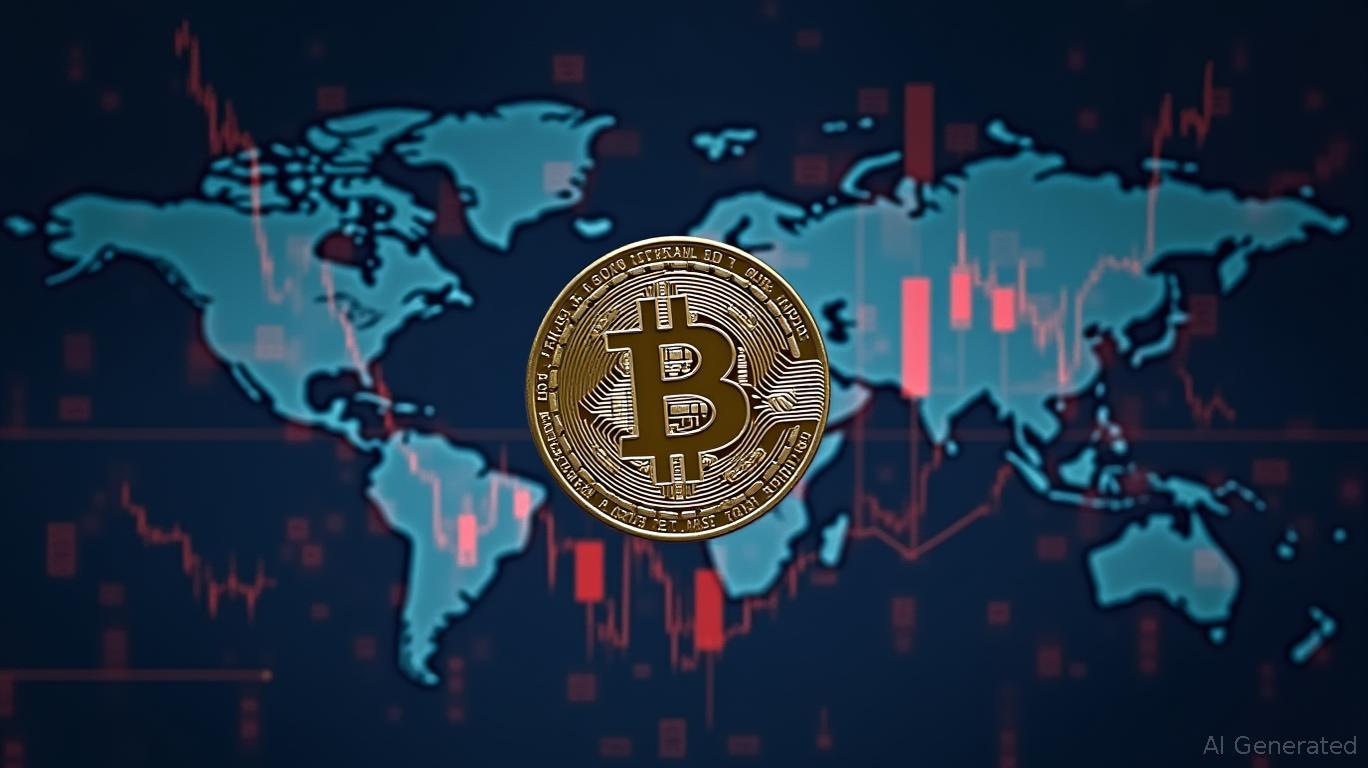Reliance Responds to Chinese Restrictions and Sanctions by Adjusting Its Global Supply Chains
- Reliance Industries faces dual challenges from China's battery export curbs and U.S. sanctions on Russian oil producers. - The company accelerates Chinese battery component shipments while boosting crude oil purchases from the Middle East and U.S. - Reliance's strategy highlights risks of overreliance on single suppliers amid geopolitical supply chain disruptions. - Chinese battery makers promise smooth export licenses, but interim uncertainty forces cautious procurement adjustments.
Reliance Industries Ltd., led by Indian billionaire Mukesh Ambani, is currently facing significant challenges in both its energy and technology supply chains. Recent developments reveal the company’s dependence on international markets as it adapts to shifting geopolitical and regulatory environments. Reliance has recently sped up the export of battery parts from China,
The company’s battery division, which is central to its renewable energy storage ambitions, is encountering immediate obstacles as China imposes stricter controls on the export of essential battery manufacturing equipment. According to the Business Standard, Chinese regulators have implemented new rules this month requiring export licenses for such equipment, effective November 8. A Reliance delegation has traveled to China to speed up shipments, and sources say that at least a dozen other international clients are also rushing their orders, sometimes skipping quality inspections to meet tight deadlines. The report notes that if Reliance cannot obtain Chinese equipment promptly, its plans to assemble batteries domestically for solar projects—an important part of India’s energy self-sufficiency efforts—could be delayed.

At the same time, Reliance has shifted its crude oil procurement approach in light of U.S. sanctions on Russian firms Rosneft and Lukoil. The company has acquired millions of barrels of crude from the Middle East and the U.S., including varieties such as Saudi Khafji, Iraqi Basrah Medium, and Qatari Al-Shaheen, with shipments scheduled for December and January,
These developments highlight Reliance’s efforts to balance its technological goals with the realities of global politics. The Business Standard pointed out that China’s dominance in the battery industry—home to six of the world’s top ten producers—makes companies like Reliance susceptible to changes in Chinese export policies. Meanwhile, sanctions on Russian oil have prompted Indian refiners to quickly adjust their sourcing strategies, leading to increased spot purchases from the Middle East, the U.S., and Brazil, according to Bloomberg.
A Reliance spokesperson commented on the changing situation, saying the company is "evaluating the impact of sanctions on Russian oil supplies and the export of refined products to Europe," and emphasized its ongoing commitment to operational stability through diversified sourcing, Bloomberg reported.
As international supply chains grow more complex due to trade disputes, Reliance’s actions mirror wider industry anxieties about depending too heavily on single suppliers. Chinese battery manufacturers have reassured customers that export licenses will be processed smoothly under the new rules, but the uncertainty has led companies to take a more cautious and reactive approach, the Business Standard reported.
Disclaimer: The content of this article solely reflects the author's opinion and does not represent the platform in any capacity. This article is not intended to serve as a reference for making investment decisions.
You may also like
Bitcoin Updates: October Sees Bitcoin ETF Investments Face Off Against Global and Economic Challenges
- Bitcoin's October underperformance, far below historical averages, raises concerns over geopolitical tensions and macroeconomic uncertainty. - U.S. spot Bitcoin ETF inflows, led by BlackRock, boosted prices above $126,000 despite volatile swings between $103,500 and $115,000. - U.S.-China trade developments and Fed policy shifts, including potential rate cuts, drive market sentiment and capital flows. - Ethereum faces outflows amid uncertainty over its post-merge roadmap, while altcoins see modest inflow

Bitcoin Updates: Investors Seize Strategic Opportunity as Market Sentiment Levels Off at Neutral
- Crypto Fear & Greed Index stabilizes at 50, marking a neutral stance after months of fear-driven volatility. - The shift reflects balanced investor sentiment, reducing panic selling and enabling strategic market analysis. - Calculated via metrics like volatility (25%), social media (15%), and Bitcoin dominance, the index signals reduced emotional trading. - Analysts highlight neutrality as a window for long-term accumulation but caution against complacency amid regulatory and macroeconomic risks.

BNB News Update: Meme Coin Craze and Security Concerns Drive Ongoing BNB Decline
- Binance Coin (BNB) fell to a nearly one-month low amid meme-coin scams and rug pulls on the BNB Chain ecosystem, dropping 12% in seven days. - A hijacked BNB Chain X account promoted fake tokens, prompting CEO CZ and Yi He to warn users against suspicious contracts and scams. - The "Sir Pancake" scam generated $20M in volume before collapsing, highlighting risks as 2.5% of new BNB Chain tokens exhibit fraudulent behavior. - BNB Chain's meme-coin frenzy, while enabling rapid gains, has exposed investors t

Bitcoin Updates: Institutional Hesitation Puts a Pause on Major Crypto Players’ Bitcoin and Ether Purchases
- Public companies have halted Bitcoin/Ether buying since October's $19B crypto crash, signaling waning short-term confidence as DAT firms reduced purchases to year-low levels. - BitMine Immersion remains a rare ETH buyer, spending $1.9B to acquire 483,000 ETH post-crash, but slowing purchases could increase market volatility according to Coinbase's Duong. - Investors now favor utility-backed crypto projects over speculative altcoins, with Bitget CEO declaring the 2025 "altseason" over due to poor risk-rew
